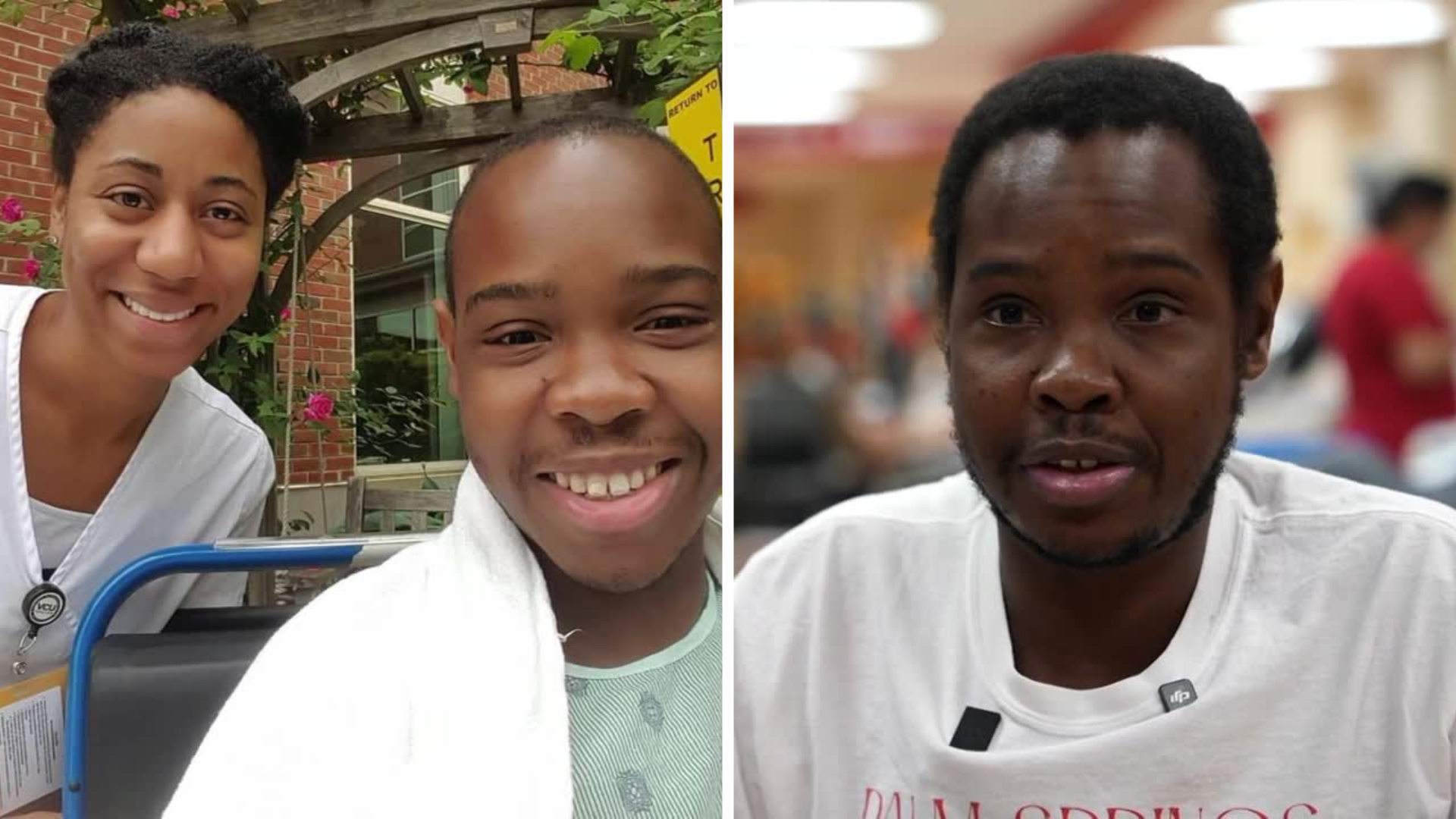RICHMOND, Va. — Going to the movies, hanging out with friends, playing video games — Jamal Bailey is your typical young adult who likes walking. But sometimes even something as simple as walking can take its toll.
"It can be stabbing, other times achy, it can be deep in your muscles. Sometimes it feels deep in your bones," Bailey said. "It's just a lot of different types of pain."
You wouldn't know it from looking, but Bailey suffers from a difficult form of sickle cell disease, a genetic disorder that causes red blood cells to change to a sickle shape, limiting its ability to carry oxygen, blocking blood vessels and causing pain, fatigue and other complications.
"You know, I've been through a lot with my sickle cell disease. I've had to receive numerous blood transplants, I also have to require a lot of pain medicine. I also spend a lot of time in the hospital, more than the usual," Bailey said.
In fact, the only silver lining from those visits is that thanks to a ready supply of blood products, Bailey usually gets the help he needs.
"I'm happy to receive that donation because it means that I will have more energy. Once I receive the transfusion I will be able to do more things. I will be able to be more energetic," Bailey said.
The complications of sickle cell mean that regular donations from the public are critical, but as Red Cross divisional chief medical officer Courtney Lawrence explains, participation remains low.
"Only about 3 percent of the U.S. population chooses at any given time to come in and donate blood despite about two thirds of the population here in the U.S. being eligible," Lawrence said.
Beyond just matching blood types, those who suffer from sickle cell need a specific kind of donor.
"For some patients like those with sickle cell disease, their body can sometime react to blood that has different proteins than what's on their own red blood cells. And so we happen to know that your racial and ethnic background can be a contributing factor to the genetics that make up that red blood cell. So, we know that someone who comes from an African or African American background is three times more likely to have blood that's compatible for the majority of African American patients with sickle cell disease," Lawrence said.
"It doesn't get the necessary exposure that is needed for such a genetic disorder. It's kind of forgotten about so we have to get the word out," Bailey said. "It's not just me. It's a lot of people in this country who are living with sickle cell who are really suffering who need blood, so we need you to come out as much as possible."
To learn more about donating blood in Virginia, click here.
CBS 6 is committed to sharing community voices on this important topic. Email your thoughts to the CBS 6 Newsroom.
📲: CONNECT WITH US
Blue Sky | Facebook | Instagram | X | Threads | TikTok | YouTube
This story was initially reported by a journalist and has been converted to this platform with the assistance of AI. Our editorial team verifies all reporting on all platforms for fairness and accuracy. To learn more about how we use AI in our newsroom, click here.





